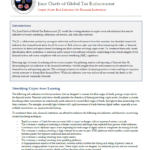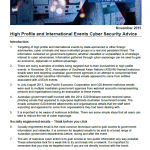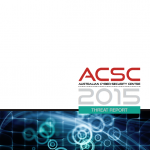
The J5, a collaborative partnership among tax authorities and law enforcement from five countries, has identified several risk indicators that financial institutions should be aware of. Risk indicators play a pivotal role in enhancing the ability of financial institutions to detect and report money laundering and illicit activities involving crypto assets. To counteract these risks, timely identification allows institutions to intervene and to report to the relevant authorities contributing to the overall integrity of the financial system and ensure compliance with anti-money laundering (AML) regulations.


